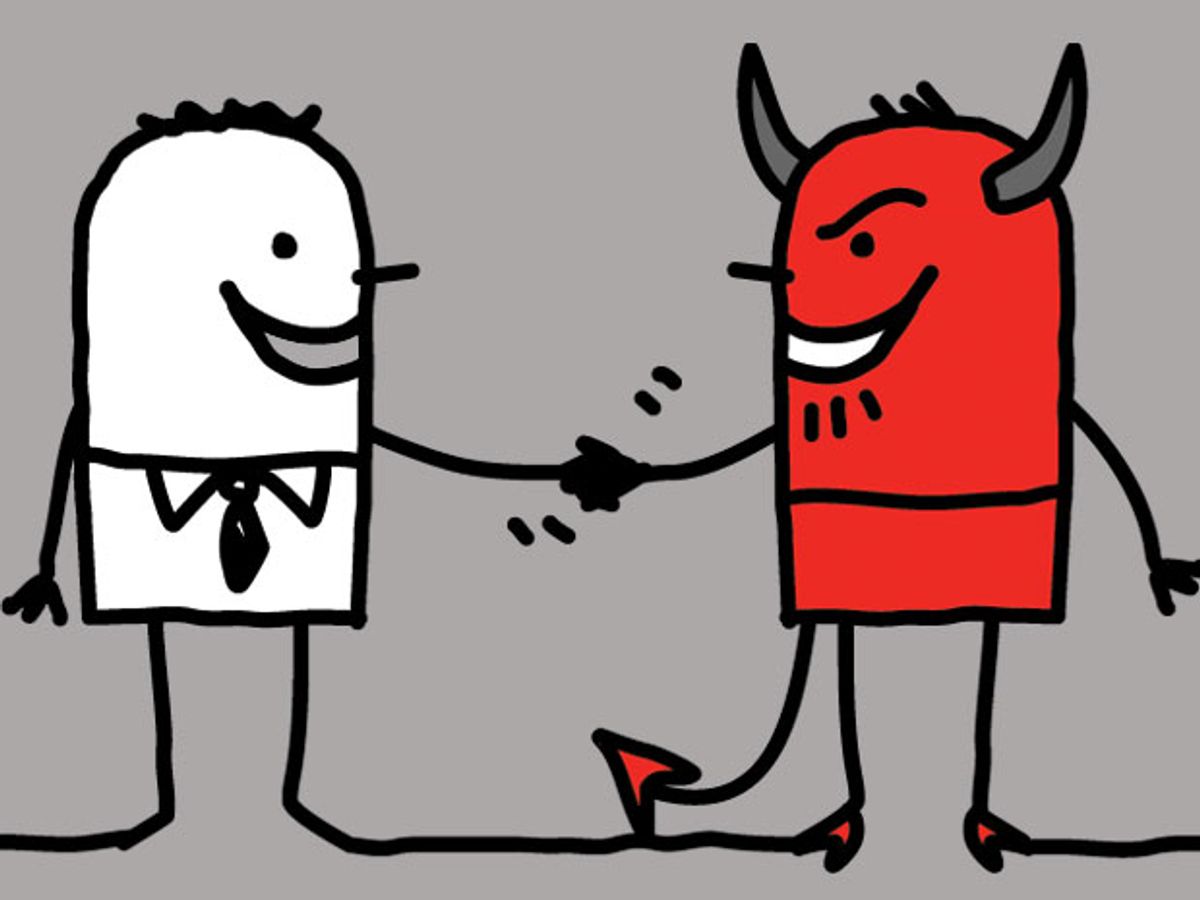Google has long had a maxim: Don’t Be Evil. (We can, of course, argue about how well it has kept to this principle.)
New peer-to-peer startups need to keep in mind another guiding rule: Don’t Be A Jerk.
Peer-to-peer commerce, with high-tech companies building apps and managing transactions between individuals, is disrupting long-stable businesses like apartment rentals, car and taxi services, and food delivery. Many peer-to-peer companies fall into a legal grey area, and local governments around the country are scrambling to figure out just how to regulate them.
But while Airbnb (apartments), Uber (car service), DoorDash (food delivery), and their brethren may be pushing the boundaries of what makes an acceptable commercial enterprise, they didn’t leap right over those boundaries.
In contrast, Monkey Parking and likely its competitors—ParkModo, Haystack Parking, and Sweetch—did. And they've landed themselves right in the center of what is beginning to be called “JerkTech,” or #JerkTech, a term coined by Josh Constine at TechCrunch. Reservation Hop, a startup that created a peer-to-peer market for restaurant reservations, is in that spot too. After much pushback and a legal slap for Monkey Parking, both startups last week said that they will “pivot” —a Silicon Valley term that usually means scrambling to figure out how to survive as a company.
Monkey Parking creates an online marketplace for people to buy and sell parking spaces. Nothing wrong with that, right? Park Circa has been experimenting with peer-to-peer rentals of driveways and didn’t cross over into the Jerk Economy. But Monkey Parking users aren’t leasing out their own driveways—they are selling public parking spaces in city lots or streets. To do so, a user parks in a public parking space in a busy area, and then uses the Monkey Parking app to auction off the parking space for US $5 to $20 to someone who is looking for a place to park. The winner of the auction pays the owner of the car sitting in the spot, who pulls out, allowing the auction winner to pull in. The auction winner still has to feed the meter. This reduces the availability of parking, encouraging people to hang out and wait for someone to buy their parking spot, or for the area to get busier and rates to go up. It could even draw parkers into busy areas just to capture parking real estate for later sale.
Last month, San Francisco reminded Monkey Parking that what they are doing is illegal, according to a law already on the books banning the private sale or rental of public parking spaces. The city sent the company a cease and desist letter, giving it until 11 July to comply. Monkey Parking initially argued that it is just selling information about availability, not the space itself, but last week it stopped operating as it tries to “achieve [its] mission within the intent and letter of the law and in full cooperation with the local authorities.” Good luck with that.
The Jerk Economy doesn’t limit itself to the parking business. Reservation Hop allows people to resell restaurant reservations. It’s classified as a jerk company because its users are trying to sell something that doesn’t belong to them. And it did not make restaurants run more efficiently, by, say, maximizing the number of diners a restaurant can serve in a given evening by better managing the flow of reservations. Instead, it is potentially reducing that number: if one of the reservations it makes fails to sell, it ends up as a no-show, and few restaurants have recourse against no shows. The app is also encouraging speculators to stockpile multiple tables at popular restaurants for busy time periods. Reservation Hop last week announced that it is changing its approach by only allowing restaurants to sell their own reservations, taking the reservation scalper out of the loop. It likely didn’t take that approach in the first place, because, there is a huge established competitor that will be able to crush it, OpenTable, the online restaurant reservations service.
The pivoting of Monkey Parking and Reservation Hop is likely not the end of JerkTech, rather the beginning of an unfortunate wave. But hopefully the pushback will inspire a few entrepreneurs to think about whether their companies are peer-to-peer companies or JerkTech companies. It may not always be obvious; one person’s great new car service is a taxi driver’s nightmare. But they might start by asking themselves:
- Will people who use my service be selling something that belongs to them or to someone else? (Don’t rent your neighbor’s house.)
- Am I going to make the market I intend to disrupt work more smoothly or less? (Don’t screw something up just so you can scrape some money off the top.)
- When I walk away after my elevator speech, will people be thinking, “I wonder why nobody thought of that before?” or, “What a jerk!”
Tekla S. Perry is a senior editor at IEEE Spectrum. Based in Palo Alto, Calif., she's been covering the people, companies, and technology that make Silicon Valley a special place for more than 40 years. An IEEE member, she holds a bachelor's degree in journalism from Michigan State University.



